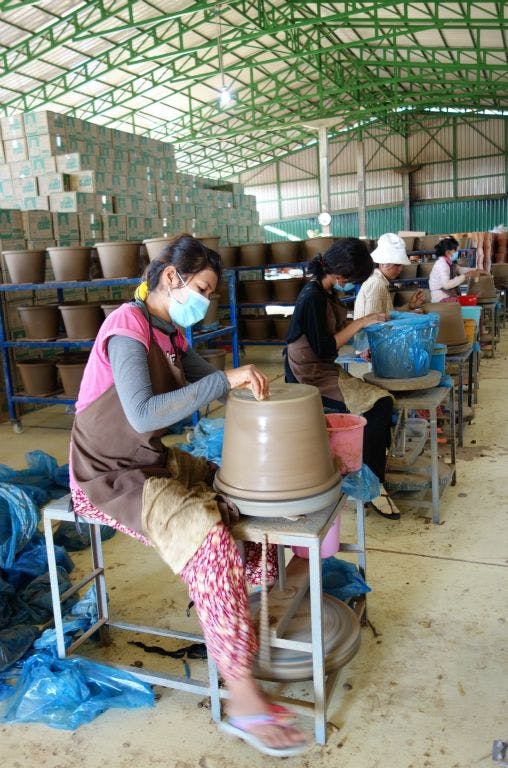As the planet continues to heat up with deadly effects, companies in Asia are left with two options: do their part or bear the cost.
With Asia responsible for about half of all greenhouse gas emissions, it is also particularly vulnerable to the impact of climate change, including rising temperatures and more common heatwaves affecting local communities and businesses. With the climate emergency escalating, more countries in the region are rolling out or ramping up regulatory action by introducing emissions trading schemes and carbon taxes to mitigate emissions and start making progress towards their Paris Agreement targets.
Singapore, for example, launched a carbon tax in 2019 and has plans to progressively increase this from the current S$5 per tonne of carbon dioxide equivalent to between S$50 to S$80 per tonne by 2030 with the goal of becoming a regional carbon markets hub by that year.
Japan recently introduced its voluntary trading scheme in April 2023 with plans to transition this to a fully-fledged emissions trading scheme by 2026, imposing a carbon levy on fossil fuel importers such as power generation companies, steelmakers and trading enterprises from 2028 onwards.
China, meanwhile, is set to expand its national emissions trading scheme – which aims to reduce greenhouse gas emissions from the power sector – to seven other sectors, including the heavy and manufacturing industries. This will make it the world’s largest scheme by total amount of emissions, targeting one-seventh of global carbon dioxide emissions from fossil fuel combustion.
Other developments worldwide will also have an impact on Asian businesses.
Companies that export carbon-intensive products to Europe, such as cement, iron, steel, aluminium, fertilisers, electricity and hydrogen, will soon have to contend with the European Union’s Carbon Border Adjustment Mechanism (CBAM), which enters into force in October 2023.
Importers in the EU will have to collect and submit data on their imports’ embedded emissions annually and pay for a corresponding number of CBAM certificates from 2026. This will favour those who export goods with lower emissions.
Faced with these developments, companies that do nothing may have to pay soaring costs to comply with stricter regulations. They also risk losing customers to rivals that better prioritise sustainability and missing out on the opportunities created by low-carbon economies.

Projects funded by the voluntary carbon market create both environmental and community benefits, such as this one which provides families in Cambodia with ceramic water filters for safe purified water to avoid the need for boiling water over a wood fire stove. Image: South Pole
The voluntary carbon market – a smart business opportunity
As the world grapples with the pressing need to reduce carbon emissions and mitigate climate change, businesses have a unique opportunity to stay ahead of compliance and gain a competitive edge in the market today by investing in the voluntary carbon market (VCM).
The VCM is a decentralised market where companies can voluntarily buy or sell carbon credits, which are created through projects that reduce or sequester emissions. Projects can range from large-scale reforestation, renewable energy or energy efficiency projects, programmes that restore marine ecosystems, to small-scale community campaigns that replace inefficient cooking stoves with cleaner alternatives, for example.
Purchasing high-quality carbon credits in the VCM essentially allows businesses to finance emission reduction projects that contribute towards global net zero. With emissions-free operations still a far-off prospect, companies should invest in activities beyond their direct operations all while working on the long-term task of decarbonising their value chain. The Science Based Targets Initiative (SBTi) terms this ‘beyond value chain mitigation’ and it is considered a critical part of credible corporate climate strategy.
As well as aligning with best practices, there are tangible benefits for businesses that engage in the VCM, such as getting ahead of compliance and internalising emissions costs by setting an internal carbon price.
“
By putting a price tag on emissions, companies are also incentivising their own emission reductions.
Danielle de la Cour
As mentioned, governments are catching up on climate action, and countries across Asia Pacific and the world are setting carbon taxes and schemes at a rapid pace. While these compliance schemes operate separately from the VCM and a company’s voluntary action does not contribute towards mandatory requirements, carbon credits are the common mechanism being used across both regulatory and voluntary markets and many structures and processes are similar. Companies can build capacity and business readiness ahead of future compliance requirements by participating in the VCM today.
In some cases, credits created for the voluntary market under international certification schemes can already be used to meet compliance obligations, signalling increased convergence between markets.
For instance, when Singapore raises its carbon tax, companies can use high-quality international credits that meet specific eligibility criteria to offset up to 5 per cent of their taxable emissions. Under Australia’s reformed Safeguard Mechanism, those affected can also buy Australian Carbon Credit Units to fulfil their obligations.
By putting a price tag on emissions, companies are also incentivising their own emission reductions.
A study conducted by consultancy Trove Research, which analysed the emissions of 4,156 companies globally recently, found that companies that purchased carbon credits decarbonised twice as fast as those that did not. This is because when companies purchased carbon credits, they also voluntarily attached a price to their own emissions, the study found, resulting in an annual cash expenditure in their budget which they would then try to reduce.
Progress on many fronts
While the total market value for VCM transactions soared fourfold between 2021 and 2022 to almost US$2 billion, there have been calls for greater regulation, with international organisations stepping up to provide guidance for companies using carbon credits.
In March 2023, the Integrity Council for the Voluntary Carbon Market produced a set of Core Carbon Principles and a carbon crediting programme assessment framework that serves as a benchmark for high-integrity carbon credits. These were developed with the input of over 350 carbon crediting programmes, project developers, academics, non-government groups, policymakers, as well as buyers and investors setting the new standard for quality.
The SBTi is also developing guidance to support companies to go beyond their science-based targets by investing in the VCM. Their recommendations are expected to be launched later this year.
The Singapore government has also acknowledged the challenges of ensuring the integrity of carbon credits and announced in February 2023 that it will soon publish a list of eligible international carbon credits that can be used by companies here to reduce their carbon tax bills. Similarly, the International Civil Aviation Organisation has outlined a list of eligible carbon credits that meet minimum quality thresholds for use in the aviation sector under the Carbon Offsetting and Reduction Scheme for International Aviation.
As countries in Asia step up the pace of their green transition, carbon markets will play a crucial role. Companies that adopt a proactive and holistic approach to decarbonising their operations – while also taking action beyond their value chain via the VCM – will be at an advantage.
Not only will they be financing valuable sustainable projects, but they will also have a financial impetus to reduce their own emissions and will be prepared ahead of future compliance requirements.
Engaging in the VCM by purchasing high-quality carbon credits is more than just good for the environment – it is also smart business.
Danielle de la Cour is the senior managing consultant, voluntary carbon markets, APAC of South Pole.


















